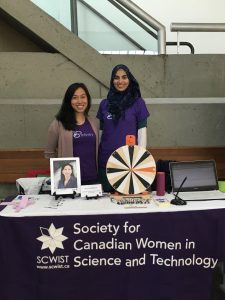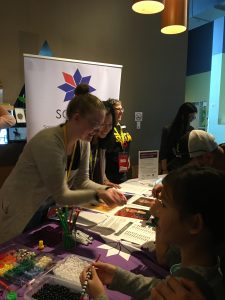Paloma Corvalan
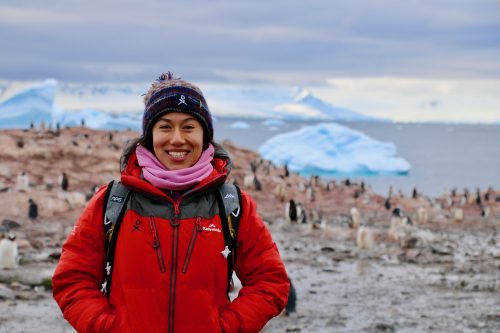
Graduation Year:
2012
Current Career/Job Title:
Partnerships and Development Manager
Current Company/Organization Name:
Sea Smart
Where you were born?
Born in Australia and grew up in Switzerland
Where do you live now?
Vancouver, British Columbia
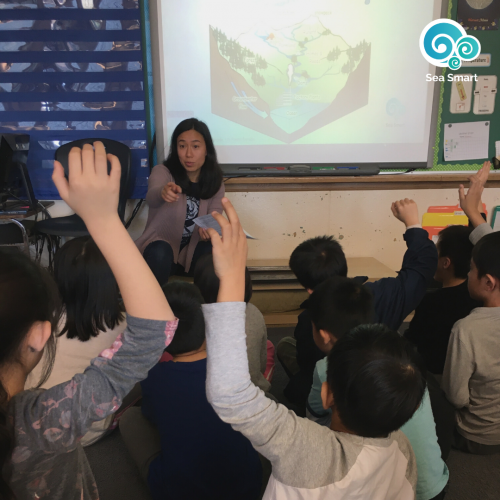
What makes this job a good fit for you?
What I love about my job is the wide variety of responsibilities and tasks, which include building, maintaining, and nurturing partnerships, and developing and facilitating new programs.
At Sea Smart, we deliver workshops and organize events to inspire people to love and protect our oceans. Working here is rewarding because I am an environmentalist who wants to create change and empower people to care for our environment. I also enjoy working with children and Sea Smart’s work is primarily focused on kids. Children are the future decision-makers and I love helping them to connect with nature and understand the recreational, spiritual, and intrinsic values of our environment.
What was your first role after graduation and what other jobs did you have before your current position?
After graduating from the UBC Biology Honours program with a minor in Psychology, my first role was as a research assistant for Professor John Richardson’s aquatic ecology lab at UBC. This experience allowed me to go to Costa Rica to do field research with Professor Diane Srivastava’s lab, where I fell in love with outdoor field research. These experiences spurred my interest in doing research for a graduate degree.
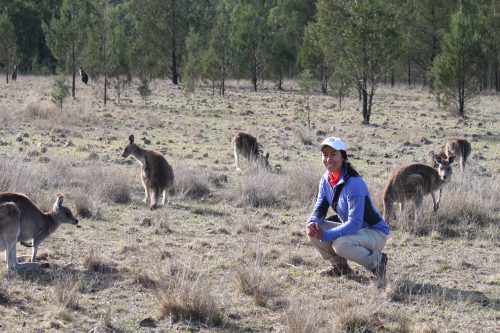
I moved to Brisbane, Australia, to pursue a PhD at the University of Queensland. I studied behavioural ecology and researched the social behaviours of mammals, which was perfectly aligned with my undergraduate experience of studying and working in field ecology and my passion for psychology. While doing my PhD, I worked as a teaching assistant for various biology courses and volunteered with Wonder of Science, where I taught students in remote areas of rural Queensland about scientific research. I fell in love with teaching, and when I moved back to Vancouver, I worked as a coordinator in an afterschool childcare centre, managing staff and planning activities for kids.
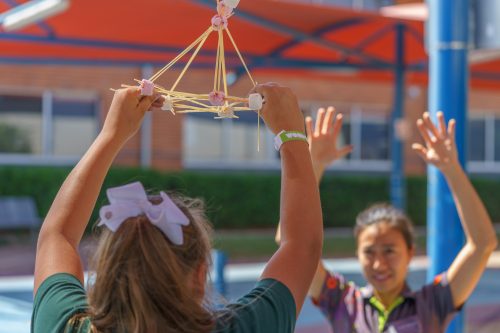
All of my roles after graduation have helped me to gain the knowledge, experience, and skills that have brought me to my current position.
What is your best career advice?
Don’t be afraid to apply for a job even if you don’t feel like you’re qualified or don’t meet all of the requirements. Put your name out there! If you’re not successful, you can get feedback that will improve your interviewing skills and future applications.
What worked for me was trying out different things and volunteering and working with many labs and a diversity of groups, including coordinating large sporting event and managing projects. This gave me a wide breadth of experiences and skills to draw from when applying for other positions and helped me understand what I was most interested in pursuing.
What are some highlights from your time in the Biology Program at UBC?
I most enjoyed the hands-on aspects of labs and the fieldwork components of courses. People learn in different ways and the Biology program used a diversity of teaching methods to encourage deep learning and retention, while making it fun for the students.
One particular highlight was when we were learning about trees in my botany course with Professor Shona Ellis and everyone was asked to share something creative, such as a song or a poem, about a tree species they were focusing on. While this was not a traditional assignment undergraduates receive in Biology, it made the course fun and created a sense of community and camaraderie. I believe these elements of fun, promoting group-cohesiveness, and encouraging creativity are important in science programs and should not be undervalued!
What choices did you make at UBC that contributed to your career success/journey?
Choosing to do an honours degree was extremely helpful because it allowed me to develop and practice research skills and helped accelerate my career path. My high achievement in honours, in addition with my subsequent research experience in Costa Rica, allowed me to be directly accepted into a PhD program.
Are there any other achievements or activities you would like to highlight?
I was part of Homeward Bound, a year-long leadership initiative for women in STEMM (Science, Technology, Engineering, Maths, Medicine) that culminated in a 3-week program in Antarctica. It was a unique opportunity to connect with women across the world, discuss how to address the gender gap in STEMM, and deeply work on my leadership, visibility, and communication skills. Hearing about the experiences from a diversity of women in different industries and career levels was enlightening. I am now a board member and President of the Society for Canadian Women in Science and Technology, addressing and helping reduce the barriers faced by women in STEM. Membership in SCWIST is open to anyone who wants to support girls and women in STEM!
